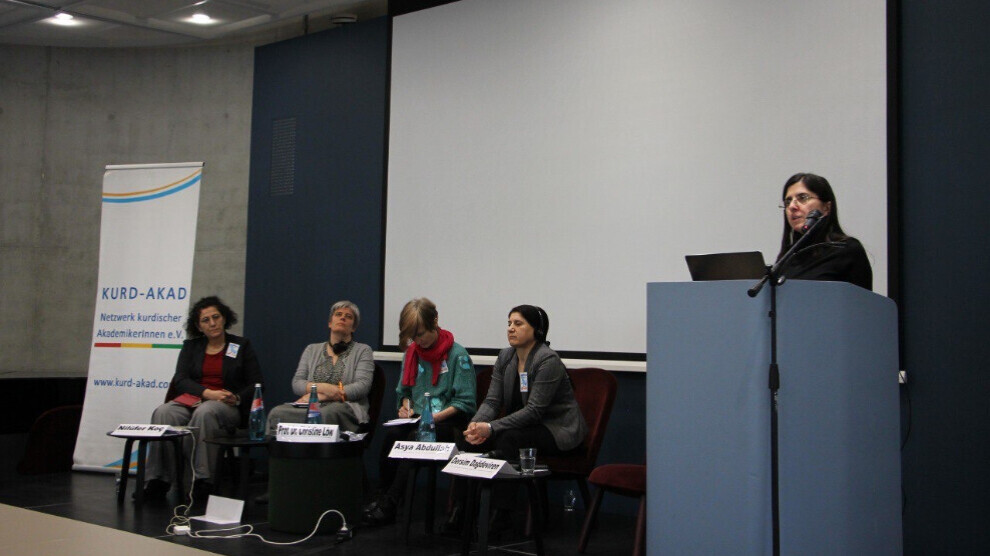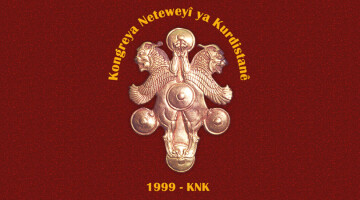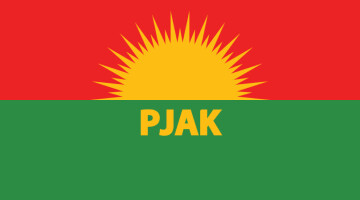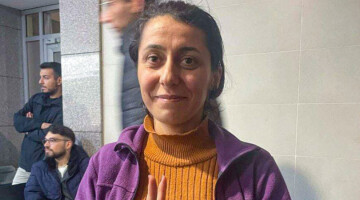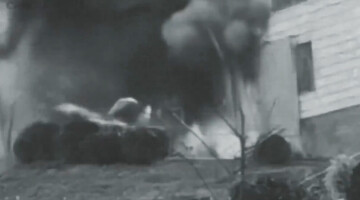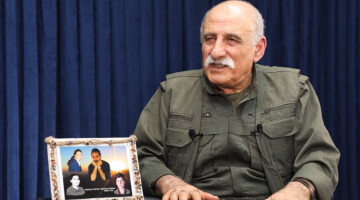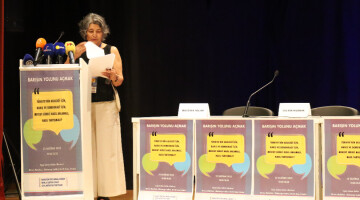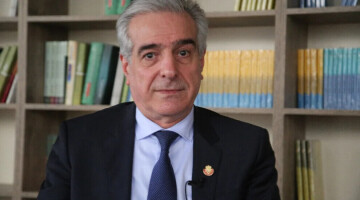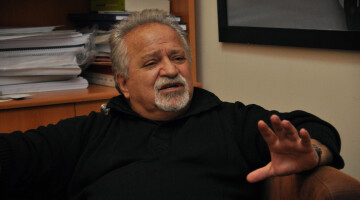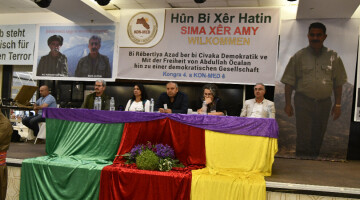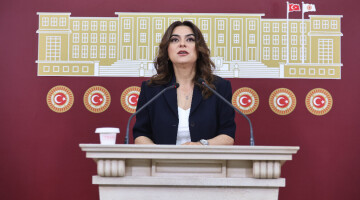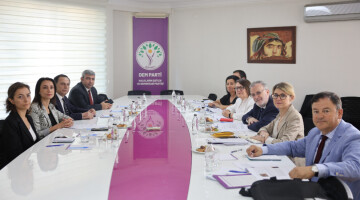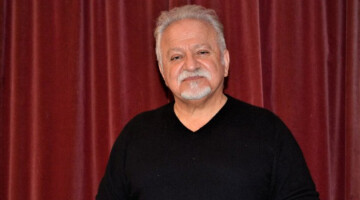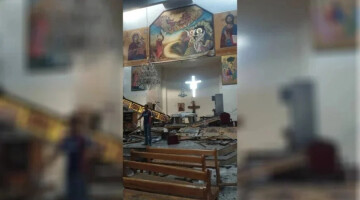The Network of Kurdish Academics (KURD-AKAD), in cooperation with the Kurdish Center Civaka Azad, held a two-day conference entitled "Rethinking the World: Challenges, Transitions and Kurdish Perspectives" in Berlin.
On Saturday morning, the topic "Germany, Turkey and the Kurds" was discussed in two sessions moderated by journalist Susana Santina. Political scientist Prof. Dr. Kenan Engin from Akkon University of Human Sciences in Berlin gave an overview of the emergence of the Kurdish diaspora in Germany and said that Kurdish organizations played an important role in the formation of a Kurdish identity.
Human rights activist and TV presenter Yilmaz Kaba spoke about "Germany and the Kurdish question: narratives and realities" and addressed the relationship of interests between Germany and Turkey and the effects on the Kurds.
In the second session, Prof. Dr. Mithat Sancar, former co-chair of the HDP and MP spoke on "Democracy in Turkey: Restitutio ad integrum or a new beginning". Noting that Turkey was built on an anti-democratic system, Sancar said: "2015 was a very important year, because at that time Erdoğan was conducting a peace process with the Kurds. Erdoğan used this process as a tool for his own power. The HDP, on the other hand, believed that there was a very important connection between the solution of the Kurdish question and democracy in Turkey. During the peace process, Erdoğan did not receive the desired share of votes in the elections. He was also worried that the Kurds in Rojava were building an autonomous system. For this reason, Erdoğan turned back to war politics."
Mithat Sancar explained that the HDP is threatened with a ban and that its successor, the DEM party, represents the same demands. "The main thing is that it demands a democratic solution to the Kurdish question," Sancar added.
In his lecture "Interests versus Principles - Parameters of German Foreign Policy," Prof. Hüseyin Çiçek said that NATO and the EU largely determine German foreign policy.
Dilan Akdoğan from the Association for Democracy and International Law (MAF-DAD) spoke about "Kurds in Tension in German-Turkish relations" and said that the Kurdish community in Germany is being sacrificed to the interests of German-Turkish relations. She explained the Federal German criminalization policy, which includes bans on publishers and organizations, criminal proceedings and residency sanctions, and stripping Kurds of their basic rights.
The last session of the conference was entitled "A different world order: New impulses and perspectives" and was chaired by Prof. Dr. Christine Löw from the University of Giessen. Veronique Dudouet, Senior Advisor of the Berghof Foundation, spoke in her presentation “The Reorganization: Strategy for Peace - Resistance and Resilience” about struggles in South Africa and Colombia and the influence of the Kurdish women's movement as well as about peace processes in the Middle East.
Dr. Dersim Dağdeviren, doctor and co-chair of KURD-AKAD, explained the history and content of the slogan 'Jin Jiyan Azadî', underlining that "the slogan was already shouted in 2006 under the influence of the Kurdish women's movement at a demonstration in Istanbul and has developed from a slogan into a solution proposal."
PYD co-chair Asya Abdullah explained the system of self-government in Northern and Eastern Syria as a solution model for international crises and said that a solution to the problems in the Middle East is not possible without a solution to the Kurdish question.
The last speaker was Nilüfer Koç from the Kurdistan National Congress (KNK), who spoke about the expectations of Germany with respect to the need for a solution to the Kurdish question.

